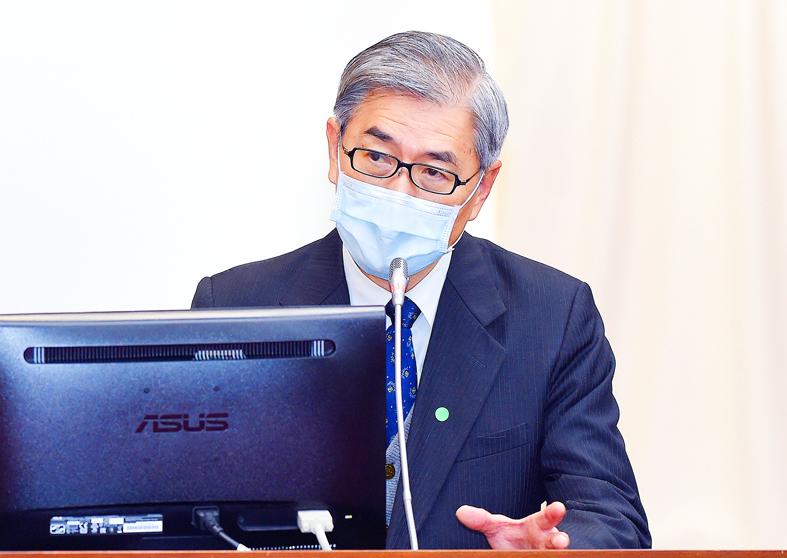The Financial Supervisory Commission (FSC) is to conduct a second round of inspections by the end of the year to ensure that financial institutions are complying with the central bank’s latest selective credit controls, Chairman Thomas Huang (黃天牧) said yesterday.
The commission would examine 10 banks, seven credit unions and three billing finance companies, focusing on their construction loan, regular mortgage and luxury real-estate mortgage practices, Huang said.
The second round would be more comprehensive than the first round last year, which inspected 13 companies, as members of the public have become especially concerned about improper mortgage approvals and an overheating property market, he said.

Photo: Liao Cheng-hui, Taipei Times
The commission would target banks with a substantial increase in mortgages in the past few years — but not those targeted in the first round — and credit unions with a rise in construction loans, Huang said.
The first round found 10 banks that did not raise interest rates for contactors and land developers that extended their loan schedules, Huang said.
The banks also failed to require borrowers to develop vacant land as planned, leading to hoarding, he said.
For example, three of the 10 banks failed to control for risk on new loans to developers who used unsold homes as collateral, while six banks were lax with borrowers who used idle industrial land as collateral.
The inspections would focus on banks’ business relationships with contractors and land developers, so it would not affect the approval of mortgages for regular consumers, the commission said.
From the end of last year to October, the amount of money loaned by banks to contractors and land developers increased 10.25 percent to NT$3.77 trillion (US$135.67 billion), commission data showed.
The central bank last week tightened its selective credit controls, lowering the loan-to-value (LTV) cap on mortgages for a third home or luxury housing to 40 percent, 50 percent for land loans and 40 percent for unsold new housing, and limiting the LTV ratio on mortgages for idle land in industrial zones to 40 percent.

South Korea’s equity benchmark yesterday crossed a new milestone just a month after surpassing the once-unthinkable 5,000 mark as surging global memory demand powers the country’s biggest chipmakers. The KOSPI advanced as much as 2.6 percent to a record 6,123, with Samsung Electronics Co and SK Hynix Inc each gaining more than 2 percent. With the benchmark now up 45 percent this year, South Korea’s stock market capitalization has also moved past France’s, following last month’s overtaking of Germany’s. Long overlooked by foreign funds, despite being undervalued, South Korean stocks have now emerged as clear winners in the global market. The so-called “artificial intelligence

‘SEISMIC SHIFT’: The researcher forecast there would be about 1.1 billion mobile shipments this year, down from 1.26 billion the prior year and erasing years of gains The global smartphone market is expected to contract 12.9 percent this year due to the unprecedented memorychip shortage, marking “a crisis like no other,” researcher International Data Corp (IDC) said. The new forecast, a dramatic revision down from earlier estimates, gives the latest accounting of the ongoing memory crunch that is affecting every corner of the electronics industry. The demand for advanced memory to power artificial intelligence (AI) tasks has drained global supply until well into next year and jeopardizes the business model of many smartphone makers. IDC forecast about 1.1 billion mobile shipments this year, down from 1.26 billion the prior

Chinese artificial intelligence (AI) start-up DeepSeek’s (深度求索) latest AI model, set to be released as soon as next week, was trained on Nvidia Corp’s most advanced AI chip, the Blackwell, a senior official of US President Donald Trump’s administration said on Monday, in what could represent a violation of US export controls. The US believes DeepSeek will remove the technical indicators that might reveal its use of American AI chips, the official said, adding that the Blackwells are likely clustered at its data center in Inner Mongolia, an autonomous region of China. The person declined to say how the US government received

People stand in a Pokemon store in Tokyo on Thursday. One of the world highest-grossing franchises is celebrated its 30th anniversary yesterday.